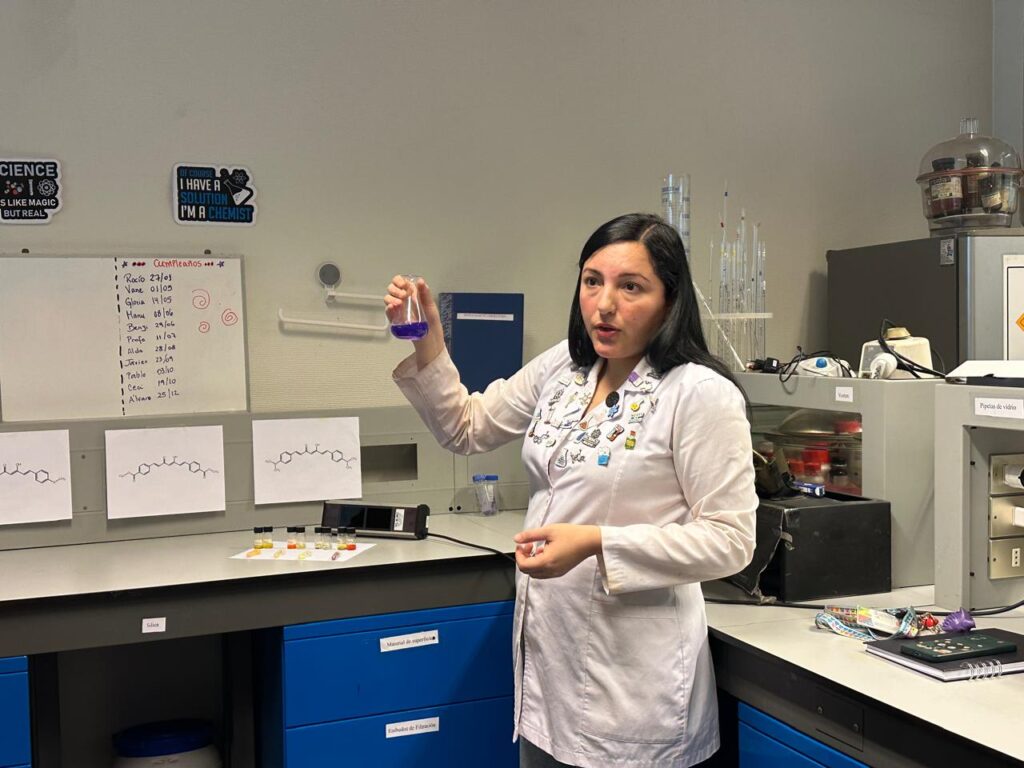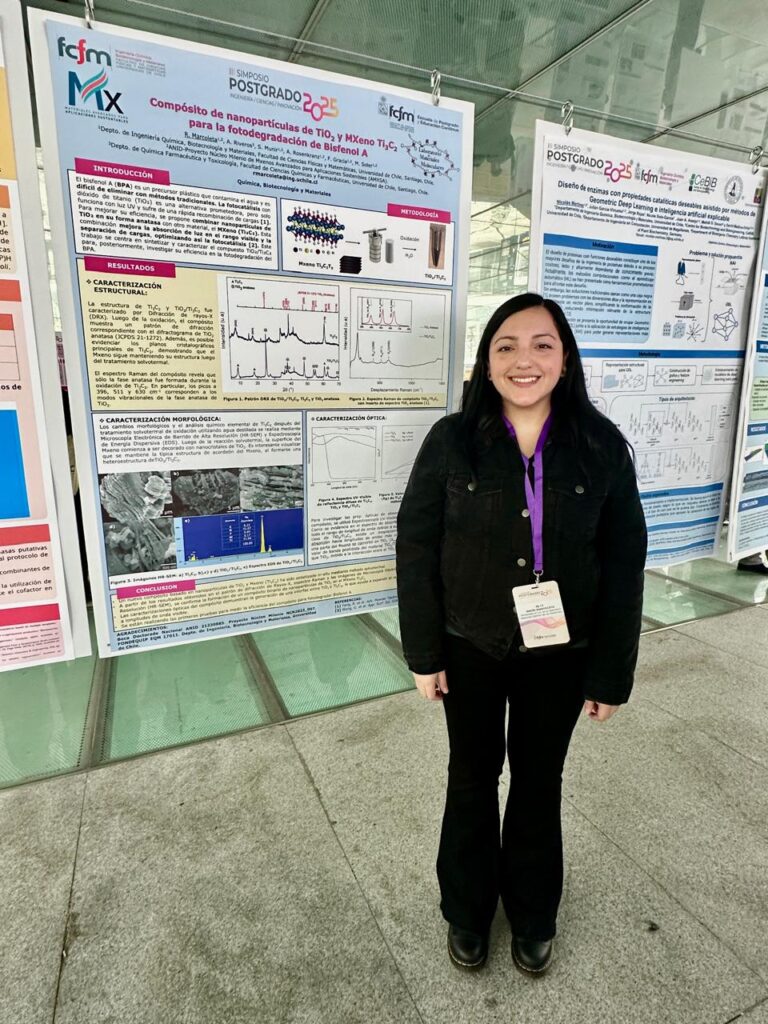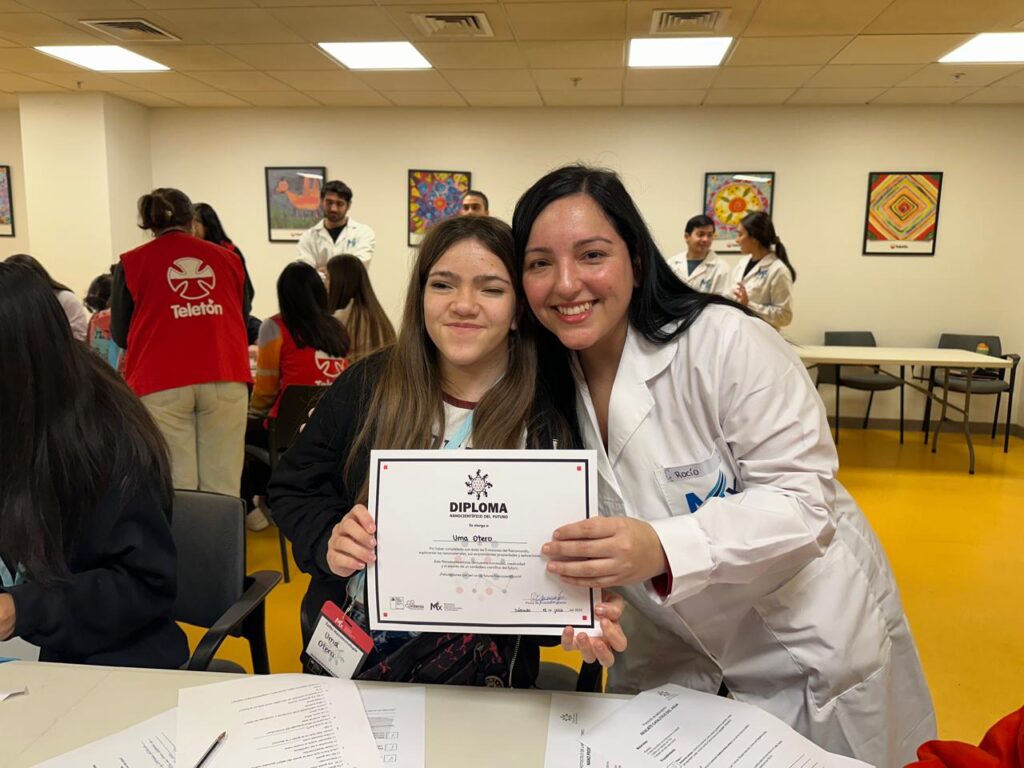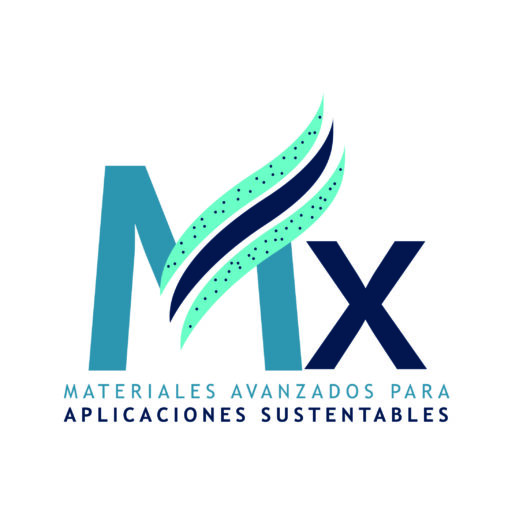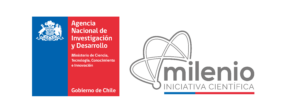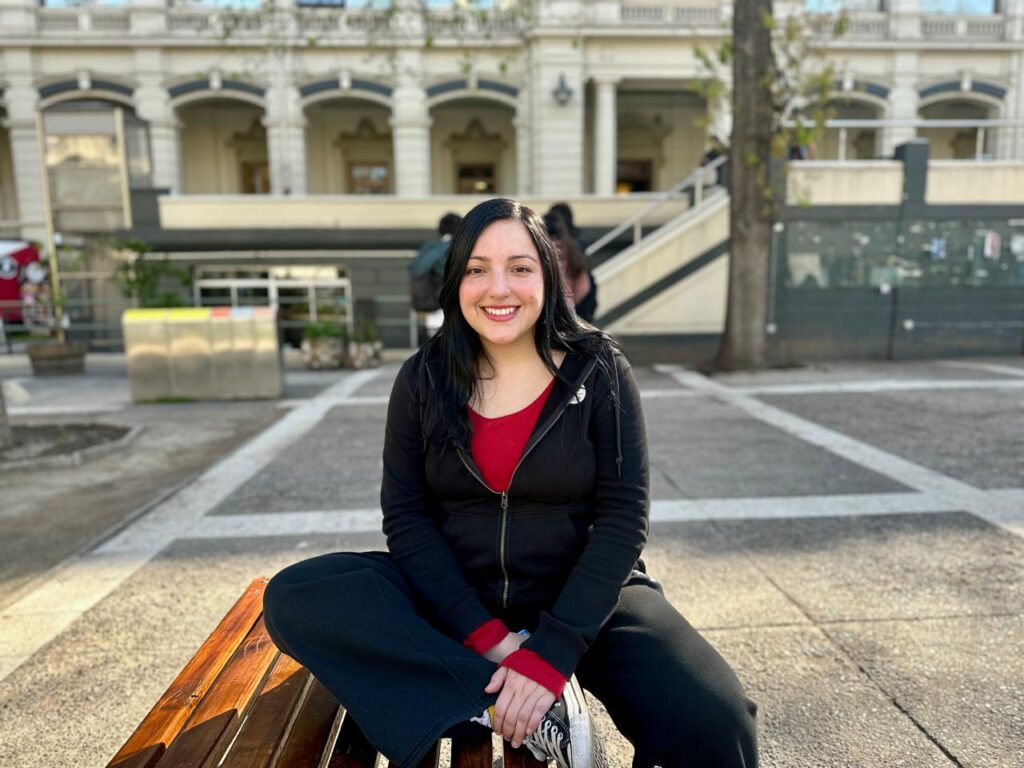Rocío Marcoleta, a PhD student in Materials Science within the Doctorate in Engineering Sciences program at the Department of Chemical Engineering, Biotechnology and Materials (DIQBM) of the University of Chile and a member of the Millennium Nucleus for Advanced MXenes for Sustainable Applications (AMXSA), was selected to carry out an Erasmus Internship Scholarship in France during 2025.
The scholarship is part of the Erasmus+ CBHE NANOMER student exchange program, which this year selected 10 students from different universities through a rigorous application process that included the review of academic records and personal interviews. The selection criteria considered academic excellence, project relevance, motivation, social inclusion, and diversity.
Between September 29 and December 23, 2025, Marcoleta will undertake a three-month research stay at Sorbonne University in Paris, France, specifically at the Laboratoire de Chimie de la Matière Condensée, under the supervision of Dr. Marco Faustini.
“I’m very happy and grateful to have been selected for this Erasmus Internship Scholarship. It’s a tremendous opportunity for my academic career and curriculum, as well as a chance to learn new methodologies that will be key to my doctoral thesis,” said the PhD student.
The objective of her internship is to learn how to synthesize and characterize monodispersed Metal–Organic Framework (MOF) colloids, controlling their size, morphology, and composition for optoelectronic applications. This work is directly related to her doctoral thesis project and to the research lines developed within the AMXSA Millennium Nucleus.
“My internship is closely connected to my research, as I will be working on the synthesis and characterization of Metal–Organic Frameworks (MOFs) with different morphologies and optoelectronic applications, which I will directly apply to the composites I am developing for my doctoral thesis,” she explained.
The Erasmus Internship Scholarship is part of the agreement signed between the NANOMER consortium, coordinated by the École Normale Supérieure de Lyon, and the European Education and Culture Executive Agency (EACEA). This agreement will provide the student with funding for her stay and administrative support during her relocation process in France.
“I hope this experience will provide me with new techniques, knowledge, and methodologies learned within a top-level research team at Sorbonne University, which I can later apply both to my doctoral work at DIQBM and within the AMXSA Millennium Nucleus,” she emphasized.
